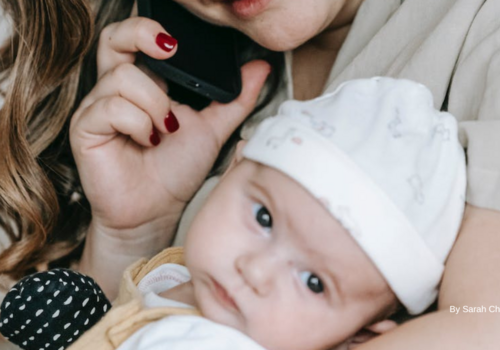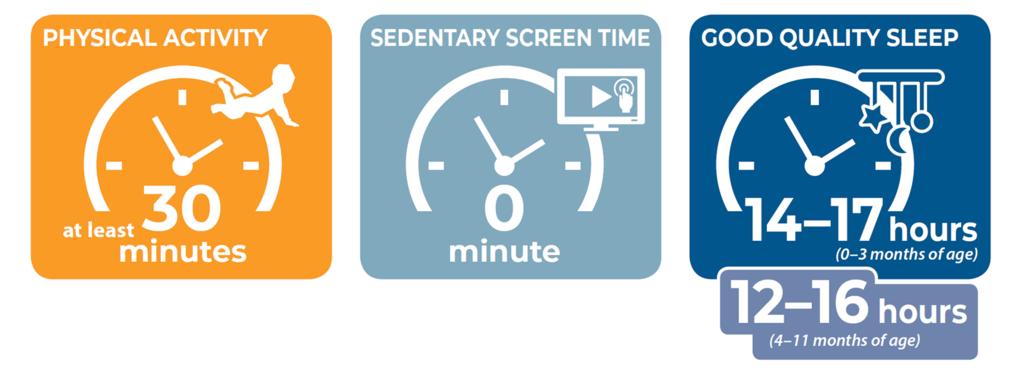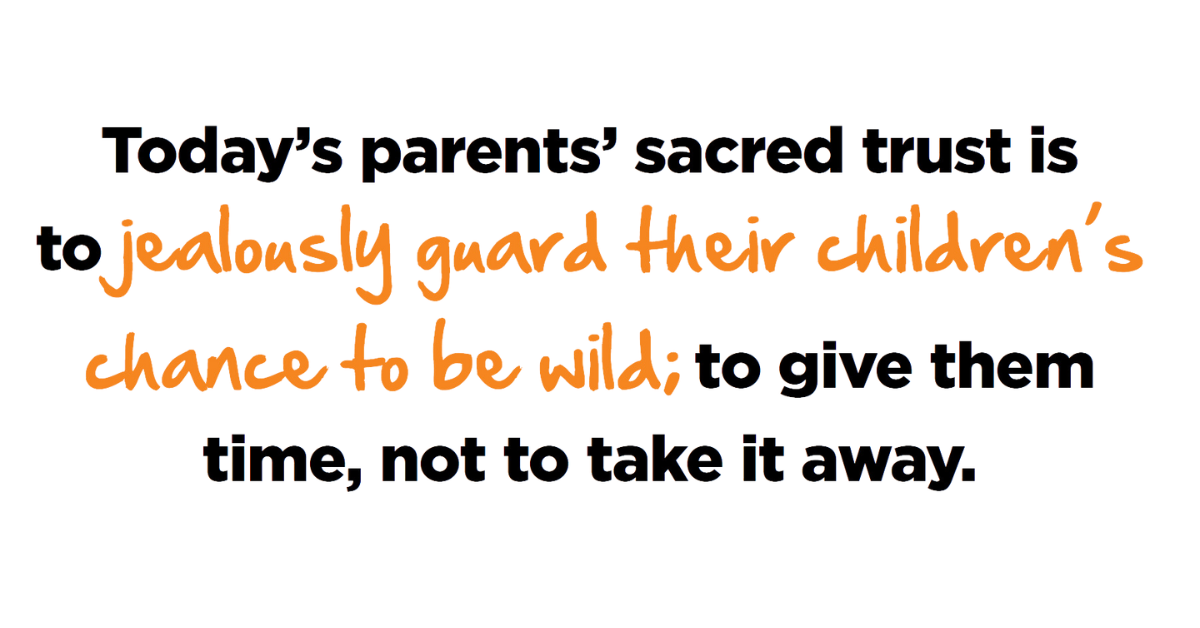
A cascade of new scientific evidence from all over the world shows how screen use can badly hurt the development of babies and toddlers. The news comes as more parents rely on tablets, phones, and TVs to calm, distract, or entertain their little children.
Studies published in just the past year paint a dire picture.
The World Health Organization recommends that children under age 2 have no “sedentary screen time.” Instead, babies and toddlers should engage with loving caregivers, move and explore their surroundings using all their senses, and get plenty of sleep.

Screens Disrupt it All
In a US study of mothers during the pandemic, those who allowed their 6-month-olds to use screens let them watch an average of 3 hours a day. “Screen use was relatively common during meals, when going to sleep, while waiting, and to help calm the infant,” the authors write.
That, they conclude, is “an impediment to the relationship between a parent and a child, disrupting maternal responsiveness and interfering with parent-child interactions.”
Language Delays
A study from Finland finds that the more a child or the child’s mother uses a screen, the weaker the child’s language skills.
Screen use reduces the time a young child has for language-building activities such as hearing household chatter, studying faces, and watching body language. For that reason, the authors conclude, “It is important to restrict both children’s screen time spent alone and mothers’ screen time.”
Sleep Issues
A large Chinese study shows that babies and toddlers who are on screens while their parents do chores tend to sleep less and have shorter periods of sleep.
The authors say “small portable screens” left in the hands of small children for long periods are “real neurodevelopmental disruptors.”
More Hyper, Not Less
Research headed by Dr. Jenny Radesky of the University of Michigan School of Medicine found that using a screen to calm a child tends to backfire.
Little ones pacified by screens don’t have the chance to develop the skills to calm themselves down. They can become impulsive and have trouble sitting still.
The authors conclude, “frequent use of devices for calming should be avoided” and pediatric health care professionals should encourage parents to use “alternate calming approaches.”
Brain Changes
A team led by Dr. John Hutton at the University of Cincinnati College of Medicine found early screen viewing may change a baby’s brain structure. Specifically, in areas responsible for visual processing, memory, letter recognition, and social skills.
Separate research by an international collaboration of major universities has a similar conclusion: “screen use during infancy may contribute to variations in neural activities implicated in the development of high-order cognitive skills.”
The researchers draw a direct line from screen-viewing in infancy to attention problems through toddlerhood until at least age 9. Screens, they say, displace “social interactions in real life.”
Screen-Induced Syndrome
In 2020, clinicians in France described a set of clinical signs among some toddlers who spent hours a day on screens.
Signs of “Early and Excessive Exposure to Screens” (EEES) include “attention disorders, language delay, and difficulty acquiring fine motor skills, along with displaying an increasingly exclusive interest in screens, relational disorders that manifest in the form of aggressive behavior, and psychomotor instability.”
Importantly, the clinical signs usually go away when a child stops viewing screens.
Two years later, a Japanese study of more than 84,000 mom-baby pairs suggests that longer screen time at age 12 months is “significantly associated” with behavior that mimics or manifests as autism spectrum disorder by age 3.
The authors write, “With the rapid increase in device usage, it is necessary to review the health effects of screen time on infants and to control excessive screen time. Guidance on appropriate screen time in infancy is recommended.”
Content Drives the Problem
New research also reveals that what babies and toddlers watch on devices makes it very hard to stop.
Radesky and colleagues find that screen content made for little children is almost always deliberately designed to keep kids glued to the screen.
Parents may learn only after being nagged to buy that their child’s app is filled with kid-directed ads and pitches.

Signs of Hope
The research also brings some remedies.
In Australia, a team led by Dr. Andrew Whitehouse is having success teaching parents skills to communicate better with “babies developing a bit differently.”
Whitehouse says all babies need to interact face-to-face: “It’s not just important that our brains receive social enrichment—they require it to develop.”
Meanwhile, a Japanese study shows that playing outside can mitigate the harms of screen overuse. Toddlers who regularly have more than an hour of daily screentime, and also play outside a half-hour a day, show improvements in social and daily living skills.
A Shanghai study of screen-addicted parents who have 3- to 6-year-old children “verified the correlation between parental screen addiction, children’s screen addiction, parental anxiety, and parent-child attachment.”
The authors offer strategies for healthy device use: “To prevent children from becoming addicted to screen media, parents need to be good role models in the proper use of screen media, as well as maintain a good mental state and be active partners to children.”
The “Experiment” is Over
Only 7 years ago in How to Be a Durable Human, I quoted Common Sense Media CEO Jim Steyer who worried that parents of very little kids were jumping on the digital device bandwagon without knowing the repercussions:
We’re conducting the biggest experiment on our children’s lives in any of our lifetimes, with virtually no research.
We have now learned enough from the research to prevent further harm to babies and toddlers due to screens.
Researcher Radesky writes of “a pressing need for government, regulatory, or industry actions to ensure that children’s needs are considered before digital products are released to market.”
Parents also need to be informed about products already on the market that undermine a young child’s unique developmental needs.
Babies Deserve More Respect
Babyhood needs to be viewed in a new way.
The first years are the only time in life we are truly free to explore the world at our own pace, following our own unique curiosity—as unplugged, wild human animals.
As I write in The Durable Human Manifesto:

Robin is an American mom who tells the story of how she helped her 14-month-old recover after he stopped talking or responding to his name and began to display autistic-like characteristics. The behavior changes began after he spent several months watching an hour or 2 of video content a day.
This is her admonition:
Families need to know that, even though heavy screen use is normalized in our society, that doesn’t mean it’s safe. Lead paint was once called safe. Asbestos was called safe. Cars didn’t have seatbelts—and that doesn’t mean it was okay.
This heavy screen use in society is fairly recent. Its effects on the human mind—on our children—hasn’t been fully realized yet. And just because you aren’t being warned explicitly at every doctor’s appointment, or by parents that came before you, or other parents—that doesn’t mean the danger isn’t there.
Babies now need proactive protection, says Lauren Paer of the child advocacy group Screen Time Action Network. “We may be aware of protecting them from sharp corners when it comes to crawling, but most homes are not properly baby-proofed when it comes to screens.”
Toward that end, the Action Network has created a powerful set of tools to help parents manage screen use around young children.
The Screen Aware Early Childhood Kit also has unprecedented guidance on how caregivers—whether related to or working with children—can engage with schools, daycare centers, babysitters, and family about the role screens should and should not play in children’s lives.
Learn more here about the Screen Aware Early Childhood Kit.
About the author: DurableHuman.com founder Jenifer Joy Madden is a health journalist, certified digital wellness educator, and mother of three practicing durable humans.




This is such valuable information summarizing very important literature from the past year about parenting the youngest of children in today’s society and how we are being fooled by AI and cultural norms as parents and how vulnerable our children are to these devices as well. I do truly love your writing style Jenifer Madden and subheadings, but most especially LOVE the links to the research for those who desire it and their finding of importance of social interactions, parental presence, and outside time being beneficial to combat effects of screens. I adore Robin’s quote!! I had a similar experience as a parent with my own kids unfortunately due to lack of understanding about screen time’s impact on development. When the screens were removed for a period of time, my son with ASD diagnosis was able to thrive and symptoms resolved more rapidly compared to the slow progress he was making before screen removal and all with the same therapies EXCEPT more of ME (Mommy time) instead of screen time. Thanks SO MUCH for sharing such important findings of research in the past year, it’s implications for our kids and the hope that understanding can bring❤️
To me…this should be common sense knowledge. All we have to do is open our eyes to what is happening around us…children and adults are losing the ability to relate in a positive way to the people and world around them. May God help us to get back on the right track.